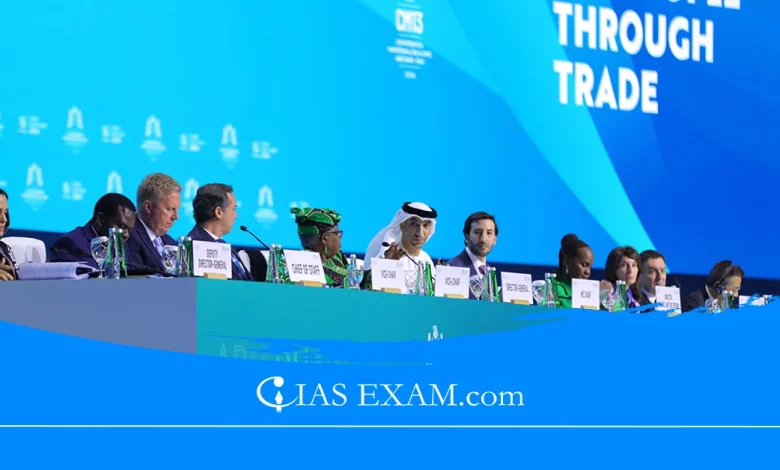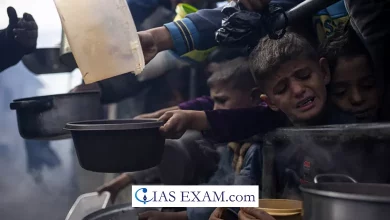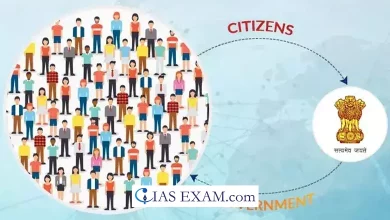Daily Current Affairs for UPSC
13th Ministerial Conference (MC13) of the World Trade Organisation (WTO)
Syllabus- International Relations [GS Paper-2]

Context
The 13th Ministerial Conference (MC13) of the World Trade Organisation (WTO) in Abu Dhabi discussed the significant development with the non-adoption of the agreement on investment facilitation for development (IFD).
Key Findings
- Despite considerable support, including from around 120 member countries, the IFD Agreement faced opposition, extensively from India and South Africa.
- Amid those developments, it’s important to understand India’s stance in opposition to the IFD Agreement and worries regarding its compatibility with WTO standards, specially concerning the nature of investment within the realm of trade and the process followed in negotiating the agreement.
Understanding the IFD Agreement
- Despite opposition from countries including India, negotiations for an IFD agreement at the WTO were launched in 2017 on a plurilateral basis by 70 countries.
- This was completed through a method referred to as the Joint Statement Initiative. The IFD agreement was finalised in November 2023.
- Today, around 120 of 166 WTO member countries (more than 70% of the membership) back the IFD agreement.
- This agreement aims to create legally binding provisions to facilitate investment flows.
- The IFD Agreement, amongst other matters, will require states to augment regulatory transparency, and streamline administrative strategies to bolster foreign investment inflows.
- Importantly, this agreement does not contain provisions on market access to, investment protection, and investor-state dispute agreement (ISDS).
- ISDS, which allows foreign buyers to carry treaty claims in opposition to the state admitting investment, has been a contentious issue in recent years.
Reason Behind India’s Opposition to IFD Agreement
- Given the existing form of the WTO’s dispute settlement mechanism, where only states can deliver legal claims against different states, it is implausible that ISDS can be part of it.
- India and South Africa played a vital position in not letting the IFD agreement to be a part of the WTO rulebook.
- India does not seem to be tremendously involved about the text of the IFD agreement.
- Instead, India’s important concerns are twofold. First, the query of whether or not investment may be a part of the WTO.
India’s Concerns with IFD Agreement at WTO’s 13th Ministerial Conference (MC13)
- Investment and its Relationship with Trade
-
-
- India’s rivalry regarding the relationship between investment and trade reflects a nuanced expertise of the evolving dynamics shaping global commerce.
- While conventional economic perspectives often portray investment and trade as inherently intertwined, India’s stance challenges this conventional wisdom by highlighting the diverse nature of investment activities and their implications for cross-border trade.
-
- The Proposed Role of Investment in Global Economy
-
-
- At the heart of India’s argument lies the recognition that investment, although necessary to global economic activities, does not always lead to the immediate facilitation of pass-border trade.
- Unlike trade in goods and services, which contain the trade of actual or intangible products, investment contains a broader spectrum of activities, ranging from capital injections into foreign firms to the acquisition of property in remote places markets.
- These investment activities might not usually result in immediate trade flows, mainly in cases where investments are made for strategic or lengthy-term functions, in place of for the express cause of conducting trade.
-
- Linkage of Global Value Chains and Investment-Trade
-
- Furthermore, India points to the complexities of global value chains (GVCs) to underscore the multifaceted nature of investment-trade linkages.
- While it is plain that GVCs rely upon both trade and investment to facilitate the seamless motion of goods and services throughout borders, India argues that the relationship among the two isn’t always usually straightforward.
Concerns with the Process of Negotiating the IFD Agreement
- Procedural Concerns in IFD Agreement Negotiations
-
-
- India’s opposition to the IFD Agreement also encompasses procedural worries concerning the negotiation method.
- India asserts that there has been no mandate for carrying out negotiations on investment inside the WTO framework.
- This declaration is grounded in previous WTO decisions, such as the 2004 General Council selection, which excluded discussions on trade and investment from the Doha Round of negotiations.
- India contends that this decision implicitly signalled a reluctance to engage in negotiations on investment-related matters within the WTO framework.
-
- Consensus Requirement and Legitimacy of Negotiations
-
-
- Moreover, India points to the consensus requirement for launching multilateral negotiations on new issues, as mentioned in the 2015 WTO Nairobi ministerial selection.
- India argues that since there was no consensus among all members to launch negotiations on an IFD Agreement, the subsequent negotiations and the text that emerged are legally questionable.
-
- Upholding WTO Integrity and Transparency
-
- India’s objection raises questions about the legitimacy of negotiating agreements outside the established framework of WTO mandates.
- By invoking past decisions and procedural necessities, India underscores the importance of adhering to established norms and ideas in shaping global trade governance.
- This stance reflects India’s commitment to upholding the integrity of the WTO’s choice-making techniques and ensure that negotiations are carried out transparently and inclusively.
Conclusion
- India’s opposition to the IFD Agreement at the WTO displays broader debates surrounding the intersection of investment and trade, in addition to procedural intricacies within the organization.
- While concerns concerning the nature of investment and the negotiation technique are valid, reconciling divergent perspectives is essential for fostering consensus and advancing global trade governance.
- As the WTO seeks to navigate evolving trade landscapes, enticing constructively with initiatives like the IFD Agreement can contribute to revitalising its legislative characteristic and addressing modern trade challenges.
Source: The Hindu
UPSC Mains Practice Question
Q.What are the key areas of reform if the WTO has to survive in the present context of ‘Trade War’, especially keeping in mind the interest of India? (2018)





.png)



